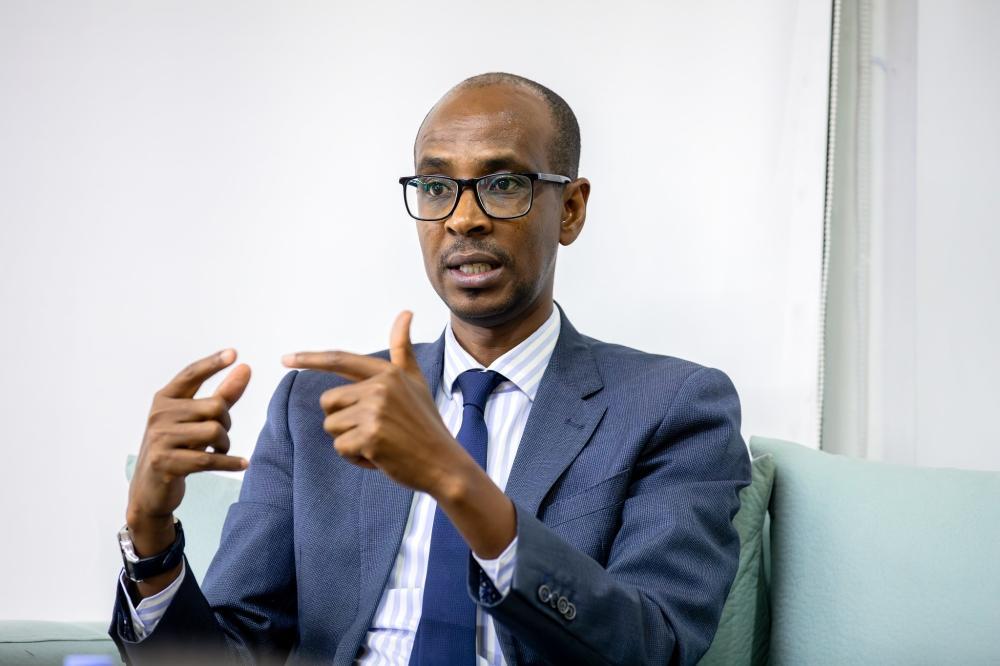Africa-Press – Rwanda. The gap between what universities teach and what the job market demands is a pressing concern as technology continues to evolve, making some employers yearn for graduates with adequate skills. Rwanda’s Higher Education Council (HEC) is now working to bridge this divide by bringing professional bodies directly into the curriculum design and review process.
HEC convened a consultative meeting on Wednesday, August 20, with a wide range of professional bodies with the aim of formalising collaboration and ensuring that higher learning institutions (HLIs) deliver programs aligned with industry standards, labor market needs, and Rwanda’s broader development goals, such as those outlined in the second National Strategy for Transformation (NST2).
Edward Kadozi, Director General of HEC, emphasized that involving professional bodies in the curriculum development is not optional but a necessity.
“We need to ensure that education delivered in higher learning institutions aligns with labor market needs, professional standards, and global competitiveness,” Kadozi said. “This way, institutions can get timely feedback and insights on the evolving demands of the labor market.”
He noted that HEC’s role goes beyond regulation, as it is about nurturing a system that equips graduates to actively contribute to Rwanda’s socio-economic development and Vision 2050. “We contribute to the realization of a knowledge-driven economy, while advancing NST2 and the Education Sector Strategy,” he added.
According to Kadozi, professional bodies play a critical role in addressing persistent challenges, including skills mismatches, limited industry input in curricula, outdated training content, and shortages of industry practitioners in teaching and quality monitoring.
“Professional bodies are the custodians of industry standards and ethics. They understand what is required in their respective fields. Their involvement ensures that graduates are not only academically qualified but also professionally competent and employable,” he stressed.
The consultative meeting sought to establish a shared framework for collaboration by defining how professional bodies will participate in the design, review, and quality assurance of academic programs.
“The role of industry is critical in shaping academic programs. What is required now is a clear understanding of the approach and ownership on both sides,” Kadozi concluded.
Lessons from medicine and dentistry
One of the sectors already benefiting from such collaboration is medicine. Dr. Marc Sebaganji, Registrar of the Rwanda Medical and Dental Council, highlighted how their partnership with HEC has improved the quality and accountability of medical education.
“Joint actions build public trust in higher education and professional practice,” Sebaganji said.
He cited examples such as the validation of undergraduate medical and dental core curricula by HEC, ensuring alignment with East African Community and World Health Organization standards. On postgraduate education, the council and HEC jointly developed guidelines in 2019, harmonizing requirements and setting benchmarks for advanced medical and dental training.
Thanks to the collaboration, there has been accreditation of 20 Master of Medicine programmes across various specialties, and approval of 25 fellowship programmes for subspecialty training.
“This partnership improves efficiency, avoids duplication, and enhances accountability. It is beneficial for both institutions and, more importantly, for the public who rely on competent professionals,” Sebaganji added.
A wider push for quality and Relevance
While medicine offers an example, other professional bodies, from law and engineering to finance and accounting, are also being encouraged to play a bigger role in shaping higher education. Their input is seen as vital in making curricula more responsive to global trends, technological advancements, and the fast-changing demands of the labor market.
Stakeholders at the meeting commended HEC’s initiative as timely, noting that it will not only raise the quality of education but also ensure that graduates enter the marketplace with the right skills to thrive.
For HEC, the initiative is part of a broader strategy to anchor higher education in the realities of the workplace and strengthen Rwanda’s human capital base. “Engaging professional bodies in curriculum review is not just about education quality,” Kadozi said, “it is about building a competent workforce for Rwanda’s future.”
For More News And Analysis About Rwanda Follow Africa-Press






